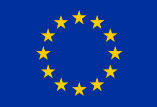18 January 2024
Bilbao Campus
The innovative European research project "WHY", coordinated by the University of Deusto / DeustoTech, has successfully presented, in a collaborative effort, its policy recommendations following the development of a revolutionary causal model aimed at analysing the everyday decisions of individuals when using energy in the home. This project aims to improve understanding and predict reactions to changes in the energy market, such as tariff adjustments, new taxes, rebates and energy efficient buildings.
The WHY project, involving a diverse team of researchers from across Europe, has harnessed this causal system and a newly developed set of tools to improve various aspects of energy planning. The tools developed within the framework of this project, have been instrumental in advancing the project:
- The assessment of trends in household electricity consumption: The project has provided a more accurate understanding of household electricity consumption trends, going beyond standardised load profiles to encompass the diversity of real people's energy use patterns.
- Knowledge of user behaviour for energy planning: Causal modelling has contributed significantly to advancing the understanding of user behaviour, allowing for more realistic and applicable simulations.
- Improving the operation and planning of the power distribution system. The project’s tools have been applied to improve the operation and planning of the energy distribution system, resulting in greater efficiency and a more sustainable energy landscape.
Main conclusions and recommendations
The WHY project has produced revealing findings that challenge conventional wisdom in the energy sector. In this regard, the project recommends the following key principles for a more effective and user-centred approach to energy management:
- Embracing diversity: Standardised load profiles do not accurately represent real people. The project advocates a more nuanced understanding of individual energy use patterns and a change in planning routines away from using standardised consumption values for residential consumers when assessing cities or municipalities. The new neighbourhood concept of the German city of Maintal is already based on these results. The case study indicated that the normalised consumption behaviour overestimated the heating energy demand by 7.5% in the whole district.
- The key is simplicity and clarity: Time-of-use tariffs are easier for individuals to follow, allowing for better organisation of household tasks and a more significant impact on reducing energy consumption. Price differences between energy tariff periods must be substantial enough to provide a clear incentive for individuals to change their behaviour.
- Social values must figure prominently in decision-making: Integrate social values into advertising, emphasising the positive impact of technologies on community support and engagement, leading to improved living conditions. Special provisions should be implemented in the tariff system to help families and individuals at risk of poverty by reducing the impact of energy-related changes in their lives. Actions to increase the competence of all stakeholders in designing policy measures to promote the uptake of certain technologies. Our results also show that providing messages that link technologies to social values such as community support will lead to improved living conditions and community engagement.
These findings and more detailed recommendations for EU and local policy makers will be released at the final online project event on 19 January 2024, which will mark the culmination of the WHY project's research efforts. The event aims to be a platform for sharing ideas, fostering collaboration and shaping a new approach to a more sustainable and user-friendly energy future.
For more information on the WHY project and to attend the final online event, visit why-h2020.eu.
The WHY project
The WHY project is a European research initiative funded by the European Union's Horizon 2020 programme. The aim of the project is to revolutionise energy decision-making by developing a causal model to analyse individuals' everyday decisions about energy use and to improve understanding of reactions to changes in the energy market. The project brings together a diverse team of experts from across Europe to contribute to the advancement of energy management and sustainability, why-h2020.eu.
This project has received funding from the European Union's Horizon 2020 research and innovation programme under grant agreement No 891943.

